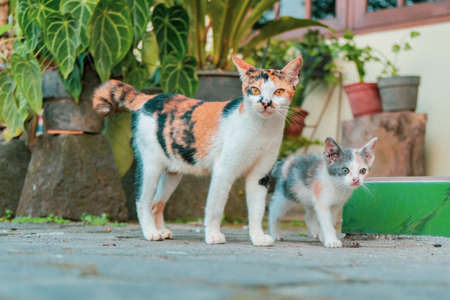Introduction: The Heart of Indian Families and the Wisdom of Elders
In the vibrant tapestry of Indian society, elders hold a cherished and revered place within families. Their wisdom, life experiences, and nurturing presence are considered foundational to the well-being and harmony of the household. In both urban apartments and rural homes across India, it is common to find grandparents or elderly relatives living with their children and grandchildren, guiding them with age-old traditions, stories from the past, and gentle counsel. Respect for elders is deeply woven into Indian culture, reflected in daily greetings like touching feet or seeking blessings before important events. Elders are often seen as custodians of family values, responsible for maintaining unity and imparting morals that shape younger generations. This strong intergenerational bond not only enriches family life but also provides emotional security to all its members. As families evolve amidst changing times, the role of elders continues to be vital, supporting both practical needs and the emotional fabric of Indian households.
2. The Rise of Pet Cats in Indian Homes
In recent years, India has witnessed a noticeable increase in the number of pet cats, especially in urban and semi-urban households. While traditionally dogs have been preferred as pets for their perceived loyalty and protective nature, cats are now being embraced for their gentle companionship and low-maintenance lifestyle. This trend is particularly significant among elderly individuals who find feline friends to be perfect companions due to their calm demeanor and ability to adapt well to indoor living.
Historically, Indian society has had mixed perceptions about cats. In some regions, cats were believed to bring luck, while in others, superstitions associated with them led to hesitation in adopting them as pets. However, with changing times and increasing awareness about animal welfare, more families are opening their hearts and homes to these graceful creatures. Elderly people in particular appreciate the soothing presence of a cat, which can help reduce feelings of loneliness and offer emotional comfort.
The following table highlights key factors contributing to the rise of cat companionship among Indian elderly:
| Factor | Description |
|---|---|
| Low Maintenance | Cats require less active care compared to other pets, making them suitable for elderly owners. |
| Apartment Friendly | Cats adapt easily to small spaces common in Indian cities. |
| Emotional Support | Feline companions provide comfort and reduce stress or isolation. |
| Cultural Shift | Growing awareness about animal welfare leads to more positive attitudes toward cats. |
Indian culture is evolving with greater acceptance of pets as family members, and the rise in cat adoption reflects this shift. Many elderly people now view cats not just as animals but as true companions who bring joy and serenity into their daily lives. As more families witness the benefits of having a pet cat, especially for senior members, it is expected that this trend will continue to grow across diverse communities in India.
![]()
3. Emotional and Mental Wellness: How Cats Enrich Elderly Lives
In many Indian families, elderly members often face challenges such as loneliness, isolation, and stress—especially as children move away for education or work. Having a pet cat can play a transformative role in supporting emotional and mental wellness among seniors. Studies worldwide, and experiences within India, reveal that the presence of a feline companion offers therapeutic benefits that go beyond simple companionship.
Reducing Loneliness and Building Bonds
Cats are gentle and loving creatures who form deep connections with their human caregivers. For elderly individuals living alone or with limited social interaction, the daily presence of a cat can help fill the silence of an empty home. The act of caring for another being—feeding, grooming, and simply sharing space—helps seniors feel less isolated. Many elders find themselves talking to their cats in Hindi, Tamil, Bengali, or their mother tongue, creating a unique bond that eases feelings of loneliness.
Natural Stress Relievers
The calming purr of a cat is known to have therapeutic effects on humans, soothing nerves and lowering blood pressure. In the hustle and bustle of Indian cities like Mumbai or Delhi, or even the quieter rural settings, the stress-relieving presence of a cat can be invaluable for elders. Stroking a cat’s soft fur after a long day or watching its playful antics provides gentle entertainment and encourages relaxation—often more effective than digital distractions.
A Renewed Sense of Purpose
Retirement and the shifting roles within traditional joint families sometimes leave seniors feeling uncertain about their purpose. Caring for a cat gives them meaningful daily responsibilities—feeding times, litter cleaning, health check-ups—which reintroduce structure into their lives. This renewed sense of purpose is vital for mental well-being and is reflected in the joy elders express when narrating stories about their beloved “billi” (cat) to grandchildren or neighbours.
For Indian seniors, adopting a cat is not just about companionship—it’s about embracing new routines, building emotional resilience, and rediscovering happiness in everyday moments.
4. Practical Advantages: Cats as Manageable Companions for Indian Seniors
For many elderly Indians, maintaining a pet can seem daunting due to physical limitations, busy family routines, or living in smaller homes and apartments. However, cats offer practical advantages that make them exceptionally suitable companions for seniors in Indian households.
Low Maintenance Needs
Cats are independent creatures who require less hands-on care compared to dogs. They do not need daily walks or extensive grooming sessions, making them ideal for elders who may have limited mobility or energy. Feeding, cleaning the litter box, and occasional brushing are usually sufficient to keep a cat healthy and content.
Quiet and Peaceful Nature
Unlike some pets that can be noisy or overly energetic, cats are known for their calm demeanor. Their quiet purrs and gentle presence bring peace to a home without disturbing neighbors—particularly important in densely populated Indian cities where noise levels are closely monitored.
Adaptability to Small Living Spaces
With urbanization on the rise across India, many seniors reside in compact flats or shared housing. Cats adapt well to limited indoor spaces and do not require access to large gardens or open areas. This makes them perfect companions even in metropolitan environments like Mumbai, Delhi, or Bengaluru.
Comparing Pet Options for Indian Elders
| Pet Type | Exercise Required | Space Needed | Noisiness | Ease of Care |
|---|---|---|---|---|
| Cat | Low | Small/Medium | Quiet | High |
| Dog (large breed) | High | Large | Loud | Moderate/Low |
| Dog (small breed) | Moderate | Medium | Moderate | Moderate |
| Birds/Fish | None/Low | Tiny/Small tank/cage | Very Quiet/Quiet | Varies (Fish: High, Birds: Moderate) |
Cultural Relevance in Indian Contexts
Cats have been part of Indian homes for generations—often seen as protectors from rodents and symbols of good luck in certain communities. Their unobtrusive presence fits seamlessly with traditional joint family systems as well as modern nuclear families. For elders seeking comfort without additional stress, adopting a cat combines companionship with convenience.
The practical benefits of feline companionship empower more Indian seniors to enjoy the warmth of a pet without being overwhelmed by their responsibilities, ensuring that both elder and animal thrive together in harmony.
5. Breaking Myths: Felines and Indian Tradition
For generations, cats have been surrounded by myths and superstitions in many Indian households. While dogs often symbolize loyalty, cats are sometimes unfairly associated with bad luck or misfortune in certain regional beliefs. It is common to hear stories warning elders not to cross paths with a black cat or superstitions about cats entering homes at night. However, these traditional views are slowly changing, especially as more families experience the genuine affection and companionship that cats provide.
In reality, felines have been present in Indian culture for centuries, quietly living alongside humans and even featuring in ancient tales and folklore. Yet, their role as family members has often been overshadowed by old misconceptions. Today’s urban and semi-urban communities are beginning to recognize the emotional benefits of feline companionship for elderly people. Cats offer comfort, reduce loneliness, and bring joy without demanding too much physical activity—qualities that suit senior citizens especially well.
It is important to address these outdated beliefs with empathy and understanding. Educating family members and neighbors about the positive influence of pet cats can help break the cycle of superstition. Sharing personal experiences and community stories where elderly individuals thrive with their feline friends can inspire others to see cats as loving companions rather than omens.
Encouraging adoption from local shelters instead of purchasing pets also supports a compassionate approach rooted in Indian values of kindness (daya) and care for all living beings (ahimsa). By celebrating the gentle nature of cats and highlighting their ability to enrich our elders’ lives, we can foster a cultural shift toward acceptance and love for these wonderful animals.
6. Adoption and Community Initiatives: Supporting Elders and Street Cats
India’s rich culture of compassion is reflected in the growing number of community-driven efforts supporting the adoption of street cats by elderly citizens. Across metropolitan cities like Mumbai, Delhi, and Bengaluru, local NGOs such as Cupcakes for Cats, Cat Café Studio, and People For Animals regularly organize adoption drives tailored to connect senior citizens with loving feline companions. These events are not just about finding homes for stray cats but also about fostering a sense of belonging and emotional well-being among elders.
Bridging Generations Through Compassion
Many NGOs actively encourage families to consider adoption for their elderly members, highlighting the mutual benefits: while older adults find companionship and renewed purpose, rescued cats experience security and affection. Organizations provide counseling sessions, home visits, and even post-adoption support to ensure a smooth transition. Volunteers often share heartwarming stories—like Mrs. Mehra from Pune, who found solace after her husband’s demise through the company of a rescued tabby named Chintu.
Community Cat Care: Beyond Adoption
Community initiatives don’t stop at adoption. Groups like Blue Cross of India run awareness campaigns about responsible pet ownership and the importance of sterilization, aiming to reduce street cat populations humanely. Local shelters host regular workshops in housing societies and senior citizen clubs, teaching basic cat care and sharing tips on how elders can safely interact with neighborhood strays.
The Ripple Effect: Uplifting Lives
Such grassroots movements have a ripple effect—by promoting adoption over buying pets, they challenge social norms and create more compassionate neighborhoods. Elders gain new friendships and a sense of community involvement, while rescued cats receive the love they deserve. In true Indian spirit, these initiatives show that caring for animals is not only a duty but also a path to personal happiness and societal harmony.
7. Conclusion: Building Compassionate, Inclusive Families
In Indian society, where the joint family system and respect for elders are deep-rooted values, adopting pet cats offers a unique way to nurture compassion and togetherness across generations. Cats, with their gentle presence and loving nature, become more than just pets—they turn into family members who bridge gaps between young and old. By welcoming a rescued or adopted cat into one’s home, Indian families can create an environment filled with empathy, patience, and shared responsibility.
As elders find comfort and companionship in feline friends, younger family members learn vital lessons about kindness and care. The daily routine of feeding, grooming, and playing with a pet cat encourages collaboration and understanding among all age groups. Moreover, this practice aligns beautifully with Indian cultural ideals of seva (selfless service) and ahimsa (non-violence), promoting the welfare of vulnerable animals while also enriching human lives.
When Indian families choose to adopt rather than buy pets, they extend their compassion beyond their household—supporting animal welfare organisations and setting examples for neighbours and friends. This act not only strengthens intergenerational bonds but also fosters a spirit of inclusivity in the community. In essence, by embracing pet cats as companions for our elders and the entire family, we take steps towards building more compassionate, supportive, and joyful homes throughout India.


